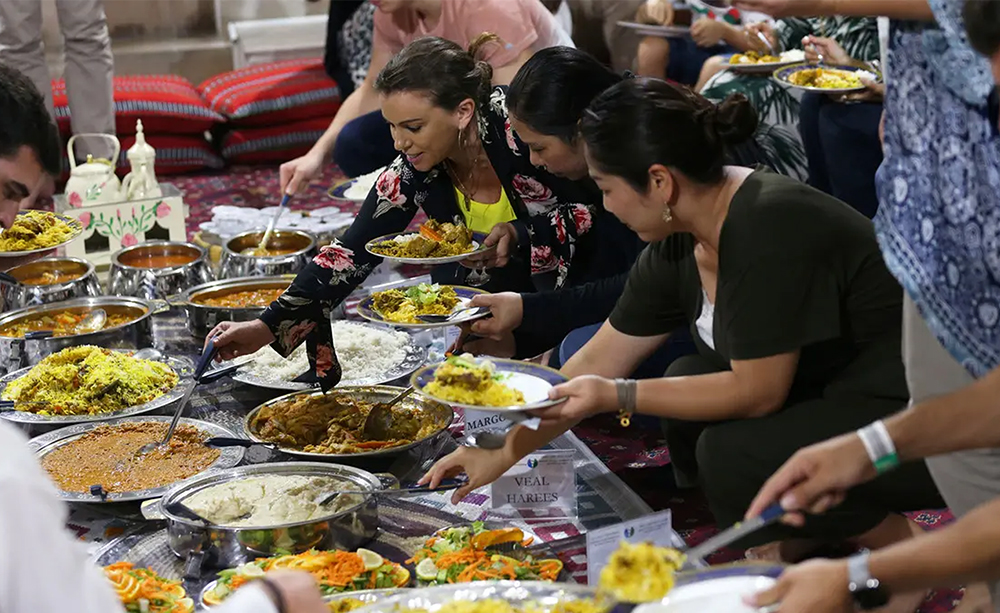The holy month of Ramadan is a “golden opportunity” to make a shift toward a greener, sustainable, healthier and non-wasteful lifestyle, dieticians and experts in the United Arab Emirates have said.
The holiest month on the calendar in Islam, Ramadan is observed by about 1.9 billion Muslims around the world who fast from dawn to sunset as an act of devotion and spirituality.
Rejuvenate mind and body
Juliot Vinolia Rajarathinam, a clinical dietitian and consultant nutritionist at Dubai’s Medeor Hospital, said Ramadan is a time for Muslims to reflect on their thoughts and actions to rejuvenate the mind and body.
“As we are evolving into people focusing on sustainable living, it is time we take responsibility for eating wisely,” she said. “Some unique tissue-healing and disease-preventing hormones and enzymes are produced only during fasting.”
These health benefits are missed when people overindulge in processed foods, refined sugars, and trans fats.
“Sustainable eating is choosing foods that are healthy and less processed with lower environmental impact, improving food security for all,” she said.
Climate-friendly meals
Rajarathinam recommends cooking “big meals” – or cooking in batches – during Ramadan, as a little pre-planning on portions can greatly reduce food wastage, food costs and greenhouse gas emissions.
Meanwhile, buying food like rice, wheat, lentils, beans, onion, garlic and spices in bulk during Ramadan sales can greatly save money and also reduce plastic waste.
“Bulk buying greatly reduces the amount of packaging material compared to buying the same product in smaller packages more frequently,” she said.
Plant-based diets reduce inflammation
She added that plant-based diets are proven to reduce inflammation and the risk of chronic diseases. They double the disease-preventing health benefits of fasting making it an “eco-friendly Ramadan,” she said.
Muslims should also reduce red meat intake and processed animal products. This can not only reduce the risk of cancer, stroke and heart disease but – according to wide-ranging studies, the red meat industry contributes to a significant amount of greenhouse gas emissions.
“Seasonal fruits and vegetables are fresh and cost-effective,” she added. “Fresh produce has more antioxidants available than preserved long-life foods. Some of the most sustainable fruits and vegetables to have while fasting are pumpkin, broccoli, tomato, carrots, sweet potato, beetroot, peas, beans, mushrooms, spinach, cabbage, apples, citrus fruits, melons, papayas, and bananas. These also do not require plastic packaging.”
Rajarathinam said eco-friendly whole grains, wild rice, oatmeal, and millets, have a good shelf life and are packed with vital nutrients that help in sustaining energy during fasting hours, are high in fiber to prevent constipation and are also budget friendly.
“Buying wisely, storing efficiently, and using healthy cooking methods incorporating traditional recipes save and revive the culture and help maintain good health,” she said. “Let’s make this Ramadan sustainable by choosing a nutritionally adequate diet, especially more plant-based, home-cooked fresh meals which are not only healthy and cost-effective but are also climate-friendly and easily decompose and nurture the soil all in line with our COP28 goals.”
Read More: Al Arabiya



